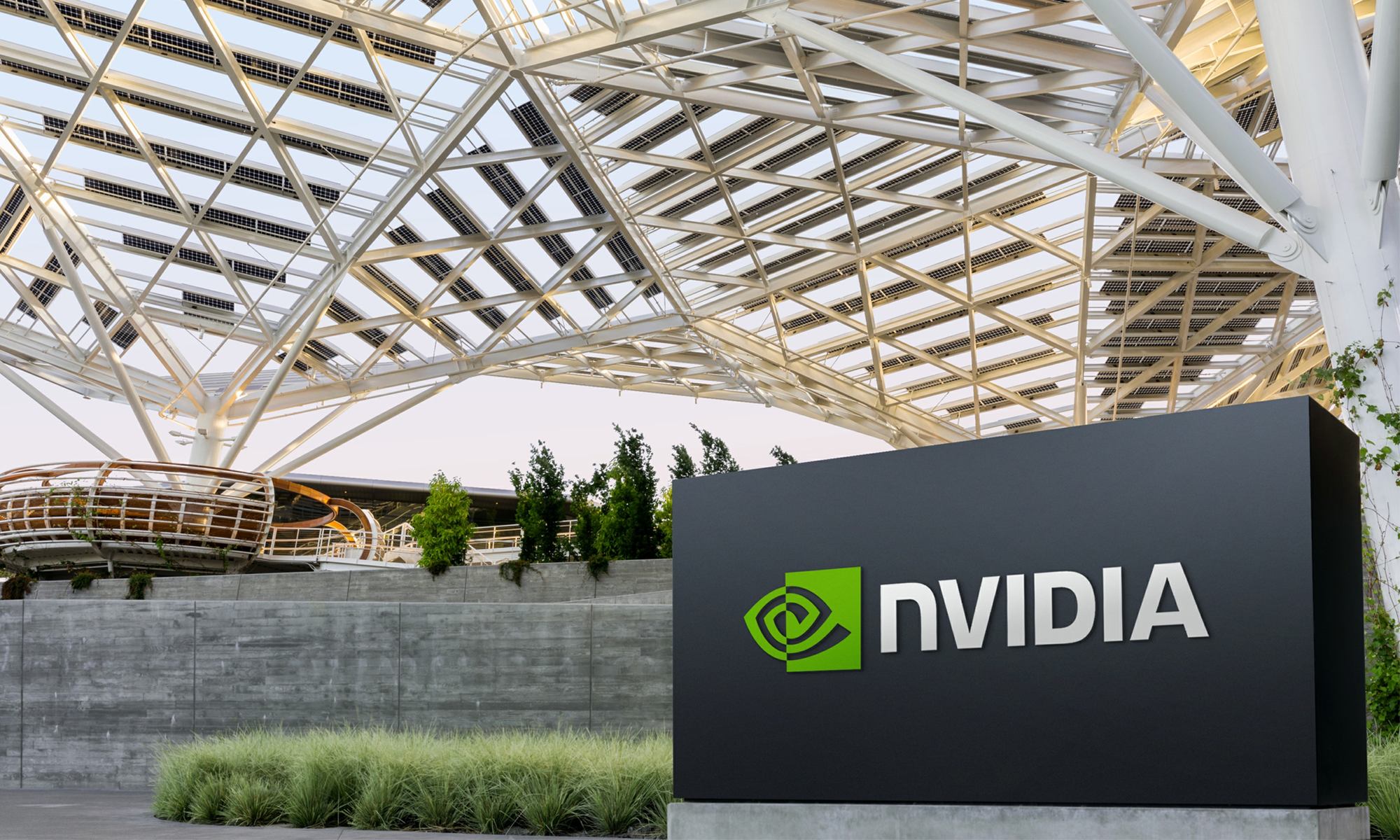Since late 2022, no trend has been held in higher regard on Wall Street than the evolution of artificial intelligence (AI). Software and systems having the ability to make split-second decisions without human oversight represents a technology with broad-reaching potential in virtually every industry around the globe.
As with most next-big-thing technologies, addressable market projections for AI are all over the map. But based on one prognostication from the analysts at PwC, the combination of productivity improvements and consumption-side effects can boost worldwide gross domestic product $15.7 trillion come 2030.
With an addressable market this vast, there's little question that a long list of companies, both hardware/infrastructure and practical application, can be big-time winners.

Image source: Getty Images.
However, Wall Street's brightest and most-successful billionaire money managers appear to have mixed feelings about the future return potential of Wall Street's AI darling, Nvidia (NVDA 2.84%). Whereas Nvidia is the largest individual stock holding for Millennium Management's arbitrage specialist Israel Englander, it's a stock that's been sold for eight consecutive quarters by billionaire growth investor extraordinaire Philippe Laffont of Coatue Management.
Englander's Millennium Management bets big on the AI revolution
To preface this discussion, Englander oversees a truly massive portfolio that's highlighted by option-based hedging with many of its individual stock positions. Though Nvidia isn't its largest pure holding, based on the nominal value of fully executed options contracts, it is the biggest individual stock by market cap for Englander's fund, excluding options contracts and exchange-traded funds (ETFs). Millennium's Form 13 filing shows the fund held 9,233,791 shares, as of the end of March.
Billionaire Israel Englander's apparent optimism for Nvidia can likely be boiled down to one or more of the following four factors.
First, Nvidia is enjoying a monopoly like market share of the graphics processing units (GPUs) being deployed by businesses in AI-accelerated data centers. Since introducing the Hopper (H100) and rolling out the successor Blackwell GPU, businesses haven't been able to order Nvidia's hardware fast enough.

NASDAQ: NVDA
Key Data Points
Secondly, but building on this previous point, demand for AI-GPUs has persistently overwhelmed the available supply. Even with direct competitors ramping up their production (e.g., Advanced Micro Devices with its Instinct series GPUs), leading chip fabrication company Taiwan Semiconductor Manufacturing can't increase its chip-on-wafer-on-substrate capacity fast enough to satisfy demand. As long as AI-GPU scarcity exists, Nvidia has a reason to charge a premium for the GPUs it's selling. The end result for Nvidia has been a big uptick in its gross margin.
Optimists like billionaire Israel Englander are also typically impressed by Nvidia's innovative prowess. CEO Jensen Huang has made it a point to invest aggressively in advanced chips and bring a faster/more energy-efficient AI-GPU to market on annual basis. Later this year, Blackwell Ultra is expected to make its debut, which will be followed by Vera Rubin and Vera Rubin Ultra in the second halves of 2026 and 2027, respectively. These latter two chips will run on the brand-new Vera processor and should have no trouble sustaining Nvidia's compute advantages.
Lastly, Nvidia's operating performance has somewhat caught up to its skyrocketing valuation. With shares of the company swooning during the first quarter due to tariff-related concerns and China-based DeepSeek's large language model chatbot reveal, Nvidia's forward price-to-earnings ratio briefly dipped below 20. Some investors clearly see value, even in the wake of Nvidia adding more than $3 trillion in market cap since 2023 began.
But there's another side to this story that Philippe Laffont's persistent selling of Nvidia stock brings to light.

Image source: Getty Images.
Laffont's Coatue Management has been selling Nvidia stock every quarter for two years
While Coatue Management's billionaire chief isn't exactly bearish on Nvidia -- it still represents a sizable holding for his fund -- he has sold shares of Wall Street's favorite AI stock for eight consecutive quarters. Taking into account Nvidia's historic 10-for-1 forward split in June 2024, here's the progression of Coatue's quarter-end share count in Nvidia since March 31, 2023:
- Q1 2023: 49,802,020 shares of Nvidia
- Q2 2023: 46,449,700 shares
- Q3 2023: 45,410,400 shares
- Q4 2023: 43,222,010 shares
- Q1 2024: 13,851,410 shares
- Q2 2024: 13,754,447 shares
- Q3 2024: 10,138,161 shares
- Q4 2024: 10,006,488 shares
- Q1 2025: 8,545,835 shares
To reiterate, more than 8.5 million shares held isn't chump change -- but there's a reason (or four) why Laffont has sold 83% of his fund's stake in the company over the last two years.
Profit-taking is absolutely a possibility for Coatue Management's boss, as well as other billionaires who've reduced their exposure to Nvidia. We've never witnessed a megacap stock gain $3 trillion in market cap so quickly before, so ringing the register might be viewed as a wise move.
However, there's also the logical expectation that competition is going to pick up in a big way for Nvidia in the coming years. Even though it's in no danger of losing its spot atop the compute leaderboard, there are more variables to consider than just how fast an AI-GPU can be.
Competitive pressures appear to be chipping away at Nvidia's high gross margin. NVDA Gross Profit Margin (Quarterly) data by YCharts.
For instance, many of Nvidia's top customers by net sales (i.e., most members of the "Magnificent Seven") are internally developing AI chips to use in their data centers. Though this hardware is no threat to Nvidia on an external basis, these internally developed chips are considerably cheaper than Hopper and Blackwell, as well as more readily accessible. The use of internal hardware means less prospective real estate for Nvidia to win in the future. It's also a drag on the AI-GPU scarcity that's powered its gross margin higher.
Laffont might also be rightly concerned about President Donald Trump's tariff and trade policy. For three years, beginning under former President Joe Biden and continuing under Trump, exports of high-powered AI chips and related equipment to China have been restricted. With President Trump emphasizing national security and the need for AI innovation to remain within domestic borders, Nvidia could lose out on billions of dollars in quarterly sales from one of its largest individual markets.
Finally, billionaire Philippe Laffont might recognize the gravity of historical precedent when it comes to the AI revolution. For more than three decades, every game-changing technology or innovation has worked its way through a bubble that eventually burst. While businesses are aggressively investing in AI infrastructure, most aren't generating a positive return on their AI investments, nor are they optimizing their AI solutions. It's going to take time for artificial intelligence to mature as a technology, which means there's a strong likelihood of an AI bubble forming, bursting, and dragging Nvidia's share price considerably lower.
Though Nvidia has the tools to be a long-term winner once AI matures, it has all the hallmarks of a company priced for perfection in an imperfect early stage trend.






